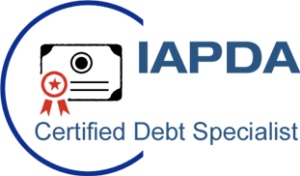
Most of us have had a bill or two in collections.
Have you ever received a phone call or dunning letter from a creditor or collection agency? Whether you fell behind on your financial obligations or simply forgot to pay a bill, you’ve probably received a reminder about your debt. Most companies in the industry of debt collection adhere to the Fair Debt Collection Practices Act (FDCPA) which are the rules that govern their behavior.
Among other things, the act prevents bill collectors from employing abusive tactics to pressure debtors into satisfying an obligation. For example, the act prevents debt collectors from threatening a debtor with certain criminal prosecution. It can also prevents excessive phone calls, certain third-party communication, and more. The FDCPA has given consumers the ability to hold creditors accountable for their actions.
How does the FCDPA protect the consumer?
Here are just a few ways the FCDPA regulates the debt relief industry and protects you from out-of-control collectors.
- A debt collector must identify themselves as such when they call you, and cannot pretend to be law enforcement. They also can’t claim to be an attorney, an official of the court, or anyone else other than a debt collector if they’re not one.
- Collection agencies cannot expect you to pay a debt that you’re not even sure is yours, and the burden of proof is on them. If you dispute the debt, they must provide proof that the debt is yours. Also, they must tell you the name of the original creditor, the amount of the original debt, as well as disclose any fees that they’ve tacked on.
- You deserve to be treated with respect, even if you are behind in your bills. Unsavory debt collectors often use belittling language, harass you with multiple phone calls each week, or talk to other people about your debts. All of these behaviors are illegal under the FDCPA. If you feel disrespected or humiliated, the chances are good that your rights have been violated.
- The Fair Debt Collection Practices Act makes it illegal for a debt collector to harass you by excessively calling your home, or calling your office at all if you’ve told them they’re not allowed to. You have the right to contact an FDCPA attorney if the calls persist.
- You have the right to be spoken to respectfully, and the Act prohibits bill collectors from demeaning, insulting, threatening or belittling you – regardless of whether you owe the debt.
- If you don’t want the collection agency to contact you at all, you can send them a cease letter and they must stop all communications. This doesn’t mean that they have to stop their attempts to collect the debt. But, it affords you the peace of not having your phone constantly ringing or collection letters piling up at your home.
What to do if a collection company violates fair debt collection.
An FDCPA attorney can help you if you think that a bill collector has infringed upon your rights. Don’t be a victim to rouge debt collectors. Instead, fight back with the Fair Debt Collection Practices Act.
It’s stressful to be on the receiving end of a debt collector’s wrath. That’s why it’s important to understand your FDCPA rights and to know that you can sue debt collectors who violate debt collection laws.





